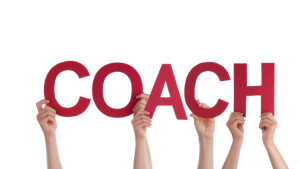It was Shane Warne who famously advised that the only time you need a coach is to get to the ground.
This might be true when dealing with one-off geniuses, but nothing could be further from the truth in rugby. As this World Cup will prove, the coach is king.
The team invariably plays in his image and all the important plays are executed on his say-so.
As much as the World Cup will test the strength of the countries that matter, the very best coaches will also reveal themselves. On the flipside, the tournament will also claim victims. It always does.
Just ask Jake White – and he won the thing.
There are some extraordinary personalities involved. Australia’s Michael Cheika, for instance, might look all mongrel, with world class cauliflower ears, but he made his fortune in fashion. From Lebanese stock, he seems rougher than a bear’s backside, but looks can be deceiving.
He’s a cerebral coach who advocates nothing but attacking rugby. He celebrates individuality too, saying “you want your quiet guy, the lover, the joker, the fighter . . . you need those guys in the team.”
It’s a refreshing attitude from a bloke who used to be Randwick’s No 8 and its enforcer. He’s still street wise and ruthless.
Across the ditch there’s Steve Hansen of the All Blacks. When he inherited the job from Graham Henry, the general view was that he would fail, having to let go of Henry’s coattails. Not a bit of it. Hansen has extended their excellence and just last week Henry himself pronounced the New Zealand class of 2015 to be better than the lot that won in 2011.
Hansen lives by the simple doctrine of having to improve. It’s his job to find the means and to exploit it.
He has also become something of a mentor to Heyneke Meyer, who has forged a bond with the ex-cop.
England’s Stuart Lancaster is from farming stock, which seems somehow apt. He is elemental and direct with an extreme work ethic. He’s enlightened too, borrowing ideas from American football, basketball, Dutch soccer and even British cycling. Lancaster takes analysis to the nth degree and even keeps a record of every coaching session he has ever held.
He’s beaten the Wallabies and the All Blacks, but a Springbok scalp eludes him. Perhaps he will get another turn in the coming weeks.
More certain to have a crack is Vern Cotter, the shrewd New Zealander who coaches Scotland. No coach who has won the World Cup has been an outsider, so the deck is already stacked against him.
Like Lancaster a man off the farm, Cotter has drawn comparisons with Scottish legend Jim Telfer for his direct, no-BS approach.
He’s something of a drill sergeant but has won the Scots over with his methods, one of which includes the establishment of the “Thistle Group” made up of senior players. Not only must they lead, Cotter himself wants to learn the best of Scotland from them rather than impose Kiwi and Gallic traditions, where he learned the arts of coaching. It’s been tough, though, with just 44 percent of games won under him.
Ireland’s Joe Schmidt, who also hails from New Zealand, is, like World Cup-winning coaches Rod Macqueen and Jake White, a former teacher. He’s transformed Ireland into Cup contenders with an aerial game and an attack that are world class.
The Irish used to be 10-man merchants, but under him they play a wide game that creates space in defensive lines.
The irony of Philippe Saint-Andre, the coach of France, is that he was a magnificent, mercurial player who has replaced flair with force. Modern France play pragmatic rugby, made worse by the coach’s glum demeanour. Win or lose, he intends stepping down after the tournament.
If a winner is likely to come from one of the aforementioned coaches, the best of them may yet be a man who over-achieves with limited resources. Someone like Eddie Jones of Japan, perhaps? Maybe Argentina’s Daniel Hourcade, John McKee of Fiji or Samoa’s Stephen Betham?
If they knock off one of the superpowers, that would be a World Cup triumph all of its own. – © Sunday Tribune
* This column was written before the Saturday tsunami in Brighton.

